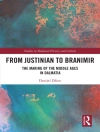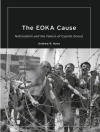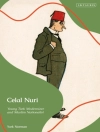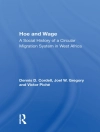Recent work on the history of migration and the Atlantic World has underscored the importance of the political economies of Europe, Africa, and the Americas in the eighteenth century, emphasizing the impact of these exchanges on political relations and state-building, and on economic structures, commerce, and wealth. Too little of this work explores culture and identity outside the Anglo-American context, especially as reflected through religious developments of radical Pietists and other Germans, the second largest group of migrants to the American colonies in the eighteenth century.
This volume offers a fresh vantage point from which to examine the Atlantic World. Quick to traverse the conventional political boundaries that divided European states and American colonies, Moravians departed their homeland to form new congregations in the most cosmopolitan European cities as well as on the North American frontier. Pious Pursuits explores the lives and beliefs of Atlantic World Moravians, as well as their communities and culture, and it provides a new framework for analysis of the Atlantic World that is comparative and transnational.
Spis treści
List of abbreviations
Acknowledgments
Introduction
PART I: THE BIRTH OF MORAVIANISM: CONFESSION AND CULTURE
Chapter 1. Imperial communities
Mack Walker
Chapter 2. Manuscript missions in the age of print: Moravian community in the Atlantic world
Robert Beachy
Chapter 3. Deep in the side of Jesus: The persistence of Zinzendorfian piety in colonial America
Craig D. Atwood
Chapter 4. Moravian physicians and their medicine in colonial North America: European models and colonial reality
Renate Wilson
PART II: MORAVIAN CULTURE AND SOCIETY: IDENTITY AND ASSIMILATION
Chapter 5. Fashion passion: The rhetoric of dress within the eighteenth-century Moravian brethren
Elisabeth Sommer
Chapter 6. New birth in a new land: evangelical culture and the creation of an American identity
S. Scott Rohrer
Chapter 7. 'Commerce that the Lord could sanctify and bless’: Moravian participation in transatlantic trade, 1740–1760
Katherine Carté Engel
Chapter 8. Piety and profit: Moravians in the North Carolina backcountry market, 1770–1810
Emily Conrad Beaver
Chapter 9. Moravians, the market and a new order in Salem
Michael Shirley
PART III: RACE AND GENDER IN THE MORAVIAN CHURCH: A PROTESTANT EXCEPTIONALISM?
Chapter 10. 'No one should lust for power… women least of all.’: Dismantling female leadership among eighteenth-century Moravians
Beverly P. Smaby
Chapter 11. The role of the pastor’s wife in the pioneering generation of protestant German-speaking clergy in the American colonies
Marianne S. Wokeck
Chapter 12. Unlikely sisters: Cherokee and Moravian women in the early nineteenth-century
Anna Smith
Chapter 13. Moravian missions in times of emancipation: Conversion of slaves in Surinam during the nineteenth-century
Ellen Klinkers
Chapter 14. Slavery, race, and the global fellowship: Religious radicals confront the modern age
Jon Sensbach
Chapter 15. Conclusion: Moravians and the challenge of writing global history of Diasporic Christianity
A. G. Roeber
Contributors
Selected Bibliography
Index
O autorze
Robert Beachy is Associate Professor of History at Goucher College. He received his Ph D from the University of Chicago and is the author of The Soul of Commerce: Credit, Property, and Politics in Leipzig, 1750-1840. His current book project is Berlin: Gay Metropolis, 1860-1933 .












